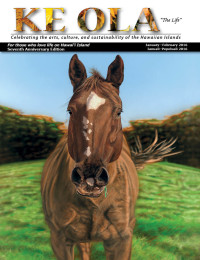
Managing with Aloha: Pono
 Are you content? You may feel there is much to be done, however the feeling of contentment is possible when you feel the path ahead is one that is right for you, one where you will enjoy the journey. It may be difficult, but because it’s the right journey it’s the best one, and you take it willingly, eagerly.
Are you content? You may feel there is much to be done, however the feeling of contentment is possible when you feel the path ahead is one that is right for you, one where you will enjoy the journey. It may be difficult, but because it’s the right journey it’s the best one, and you take it willingly, eagerly.

To be content, is to be at peace with decisions made, to be calm and stress-free. For the moment there is no striving in your mission, just the steadying certainty of going for it.
This feeling and overall confidence of Pono is contentment within rightness. Naturally, we often elevate Pono as an constant goal to achieve. When you are Pono, all becomes right for you because you make it so. All you juggle in life is in harmony and in balance no matter the complexity of your life. There’s no inner conflict and there are no outside struggles which need be brought to resolution. There’s just the doing of your purpose, and getting the goodness in life achieved.
Simply said, Pono helps right conquer wrong, whether inside us or around us. To be known as ‘a Pono business’ is to stand by your moral convictions, and deservedly enjoy a reputation of always doing the right thing. You do right by everyone, every time.
Many in Hawai‘i define Pono as righteousness, and even the motto of our state, Ua mau ke ea o ka ‘āina i ke pono, is translated as “the life of the land is perpetuated in righteousness.”
However, as a value which drives behavior, think of Pono as rightness versus righteousness. Pono promotes goodness, wellness, correctness, and balance. It is self-consciousness, not self-righteousness, and the keen balance of all those forces that bring you contentment in your life. Self-righteous people are not content, for they are resentful or hesitant with giving their Aloha to others completely: Their ‘uhane of giving is not yet Pono.
As I have been taught, our Hawaiian culture names three different things which make up the entirety of a human being. They are kino, your physical body and health; mana‘o, your mind and beliefs; and ‘uhane, your soul and spirit, in and of Aloha. As a value, Pono seeks to bring all three of these components to their best health, so they are in balance, and one is not stronger at the expense of the other. The ancient Hawaiians believed that ultimately the spirit will always be stronger, and even ‘uhane, the soul and spirit, must be good, and it must achieve the rightness and balance of Pono to not be hurtful for one’s physical well-being, nor overly influence one’s mindfulness. In English, we call this having integrity.
I will often hear of a fourth factor in the ‘ōlelo spoken and taught by other kūpuna, and it is of na‘au, one’s gut feelings and intuition. They teach that the gut is the seat of one’s personal wisdom, not the head. They are urging you to listen with your entire being, careful not to dismiss your own intuition too quickly. Intuition is referred to as “emotional intelligence,” different from mindfulness, logic, and reason.
The mind-body-spirit trilogy can be overwhelming to think about, for each can be daunting in and of themselves. So focus on the word contentment, and away from self-analysis for a moment. Take notice of your staff, your peers, your leadership team and your family, and ask yourself if Pono and the feeling of contentment is what you see. Pono should be familiar and recognizable for you. Do you notice that they:
• Have personal control of their lives, easily accepting responsibility?
• Are well rounded, involved in something meaningful outside of work?
• Are committed to a goal?
• Live within their passion?
• Are healthy, and their lifestyle contributes to their health?
• Don’t go it alone; they actively seek the company of others?
• Have a sense of humor, especially with their own blunders?
• Have values that nurture their soul and their spirit?
• Can openly share all these things and talk about them?
You will find that those who score Yes! on this checklist have a great attitude about things in general. They are optimists, and very happily so, feeling hopeful about what may lie ahead. They are realistic, yet involved, and engage in life as willing and active participants. They want to be right in the middle of it.
Pono is all about attitude, and how attitude always comes before outcome. Good attitude, good prospects, good outcome.
Remember, when you manage with Aloha you have the belief that people are intrinsically good; what you seek to influence is their behavior. More often than not, the responsibility of this behavioral influence comes down to upholding what we know as the difference between right and wrong, with your business demonstrating its’ Pono contentment and courage daily.
~ Rosa Say
Next issue: Ka lā hiki ola, the value of hope and promise.
Contact writer Rosa Say, Managing With Aloha


